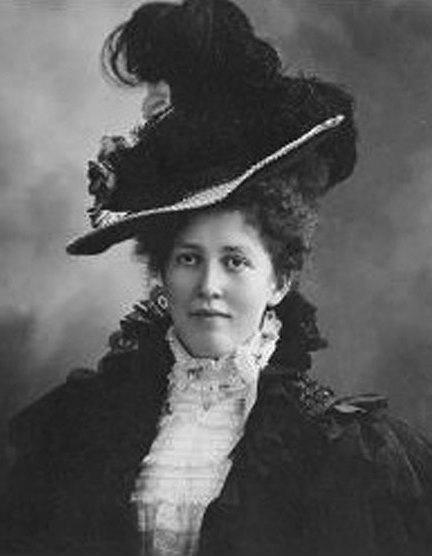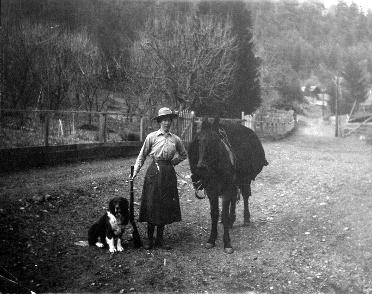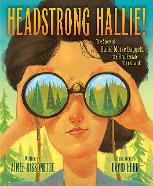Hallie Daggett was the first woman to serve as a USDA Forest Service fire lookout.
She was hired by the Klamath National Forest in 1913 and served on the Eddy Gulch Lookout for 15 years.
Hallie was a refined woman educated in San Francisco; however, her deep love of her childhood home at the Black Bear Mine near Sawyers Bar, California, drew her back to the mountains.
She learned how to hunt, fish, ride, trap, and shoot early in life-skills that came in handy at the lookout high above the Salmon River.

Hallie loved spending time outdoors, hiking among the tall trees of the forests in California's Siskiyou Mountains. She wasn't afraid of the bears, coyotes, and wildcats. However, Hallie was afraid of fire and understood the threat it posed to the forests, wildlife, and people. And more than anything, she wanted to devote her life to protecting her beloved outdoors; she decided she would work for the US Forest Service. But in the 1880s the Forest Service didn't hire women, thinking they couldn't handle the physical challenges of the work or the isolation. The Forest Service didn't know Hallie or how determined she could be.
Few women would care for such a job, fewer still would seek it, and still fewer would be able to stand the strain of the infinite loneliness, or the roar of the violent storms which sweep the peak, or the menace of the wild beasts which roam the heavily wooded ridges.

Some of the Forest Service men predicted that after a few days of life on the peak she would telephone that she was frightened by the danger and loneliness, but full of pluck, high spirit she grew more in love with the work.
Even when the telephone wires were broken and when for a long time, she was cut off from communication with the world below she did not lose heart. She not only filled the place with all the skill which a trained man could have shown but she desires to be reappointed when the fire season opens this year 1914.
In describing her life as a lookout, Hallie said: "I grew up with a fierce hatred of the devastating fires and welcomed the Forest Service force which arrived to combat them. But not until the lookout stations were installed did there come an opportunity to join what had up till then been a man's fight; although my sister and I had frequently been able to help on the small things, such as extinguishing spreading campfires or carrying supplies to the firing line. "Then, thanks to the Iiberal-mindedness and courtesy of the officials in charge of our district, I was given the position of lookout ... with a firm determination to make good, for I knew that the appointment of a woman was rather in the nature of an experiment, and naturally felt that there was a great deal due the men who had been willing to give me the chance".
"It was quite a swift change in 3 days, from San Francisco, civilization, and sea level to a solitary cabin on a still more solitary mountain, 6,444 feet in elevation, and 3 hours' hard climb from everywhere, but in spite of the fact that almost the very first question asked by everyone was 'Isn't it awfully lonesome up there?' I never felt a moment's longing to retrace the step, that is, not after the first half-hour following my sister's departure with the pack animals, when I had a chance to look around ... I did not need a horse myself, there being, contrary to the general impression, no patrol work in connection with lookout duties, and my sister bringing up my supplies and mail from home every week, a distance of 9 miles."
In her later years (1951), Hallie's hometown of Etna, California, built her a cabin on a Main Street lot next to her sister Leslie's home. She lived in this house until her death in 1964. The cabin was donated to the City of Etna by the Rosemary Holsinger family in 1993. The City of Etna, through a volunteer citizen's committee, moved the cabin to the city park and developed an historical interpretive site that was completed in 1996. This project was identified as a priority in the Etna community action plan and was funded by Forest Service grants from President Clinton's Northwest Economic Adjustment Initiative and the Ore-Cal Resource Conservation Development Area. The project was also sponsored by the Native Daughters of the American West.
We celebrate Hallie as a female pioneer who followed her bliss despite all obstacles.


